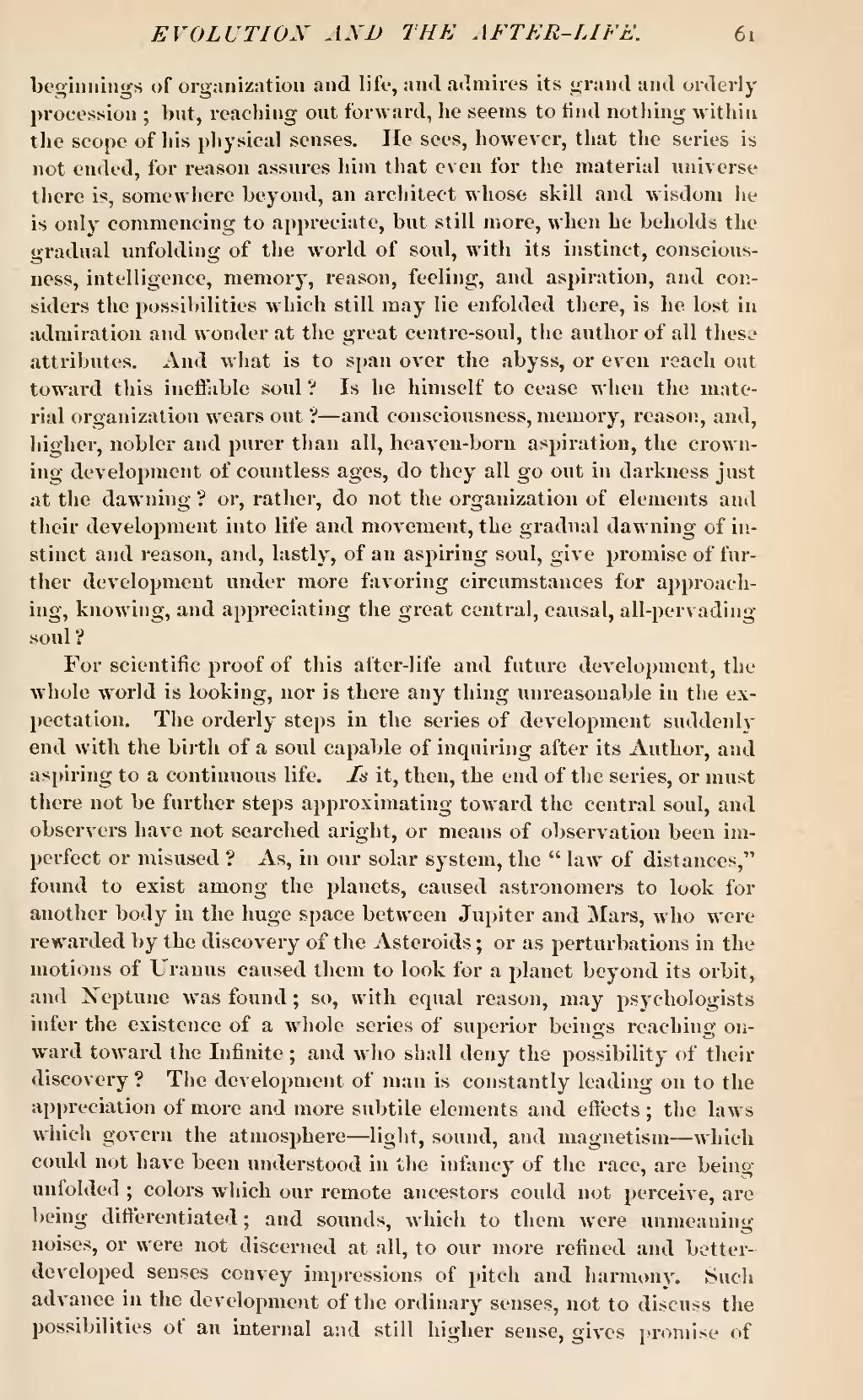beginnings of organization and life, and admires its grand and orderly procession; but, reaching out forward, he seems to find nothing within the scope of his physical senses. He sees, however, that the series is not ended, for reason assures him that even for the material universe there is, somewhere beyond, an architect whose skill and wisdom he is only commencing to appreciate, but still more, when he beholds the gradual unfolding of the world of soul, with its instinct, consciousness, intelligence, memory, reason, feeling, and aspiration, and considers the possibilities which still may lie enfolded there, is he lost in admiration and wonder at the great centre-soul, the author of all these attributes. And what is to span over the abyss, or even roach out toward this ineffable soul? Is he himself to cease when the material organization wears out?—and consciousness, memory, reason, and, higher, nobler and purer than all, heaven-born aspiration, the crowning development of countless ages, do they all go out in darkness just at the dawning? or, rather, do not the organization of elements and their development into life and movement, the gradual dawning of instinct and reason, and, lastly, of an aspiring soul, give promise of further development under more favoring circumstances for approaching, knowing, and appreciating the great central, causal, all-pervading soul?
For scientific proof of this after-life and future development, the whole world is looking, nor is there any thing unreasonable in the expectation. The orderly steps in the series of development suddenly end with the birth of a soul capable of inquiring after its Author, and aspiring to a continuous life. Is it, then, the end of the series, or must there not be further steps approximating toward the central soul, and observers have not searched aright, or means of observation been imperfect or misused? As, in our solar system, the "law of distances," found to exist among the planets, caused astronomers to look for another body in the huge space between Jupiter and Mars, who were rewarded by the discovery of the Asteroids; or as perturbations in the motions of Uranus caused them to look for a planet beyond its orbit, and Neptune was found; so, with equal reason, may psychologists infer the existence of a whole series of superior beings reaching onward toward the Infinite; and who shall deny the possibility of their discovery? The development of man is constantly leading on to the appreciation of more and more subtile elements and effects; the laws which govern the atmosphere—light, sound, and magnetism—which could not have been understood in the infancy of the race, are being unfolded; colors which our remote ancestors could not perceive, are being differentiated; and sounds, which to them were unmeaning noises, or were not discerned at all, to our more refined and better-developed senses convey impressions of pitch and harmony. Such advance in the development of the ordinary senses, not to discuss the possibilities of an internal and still higher sense, gives promise of

